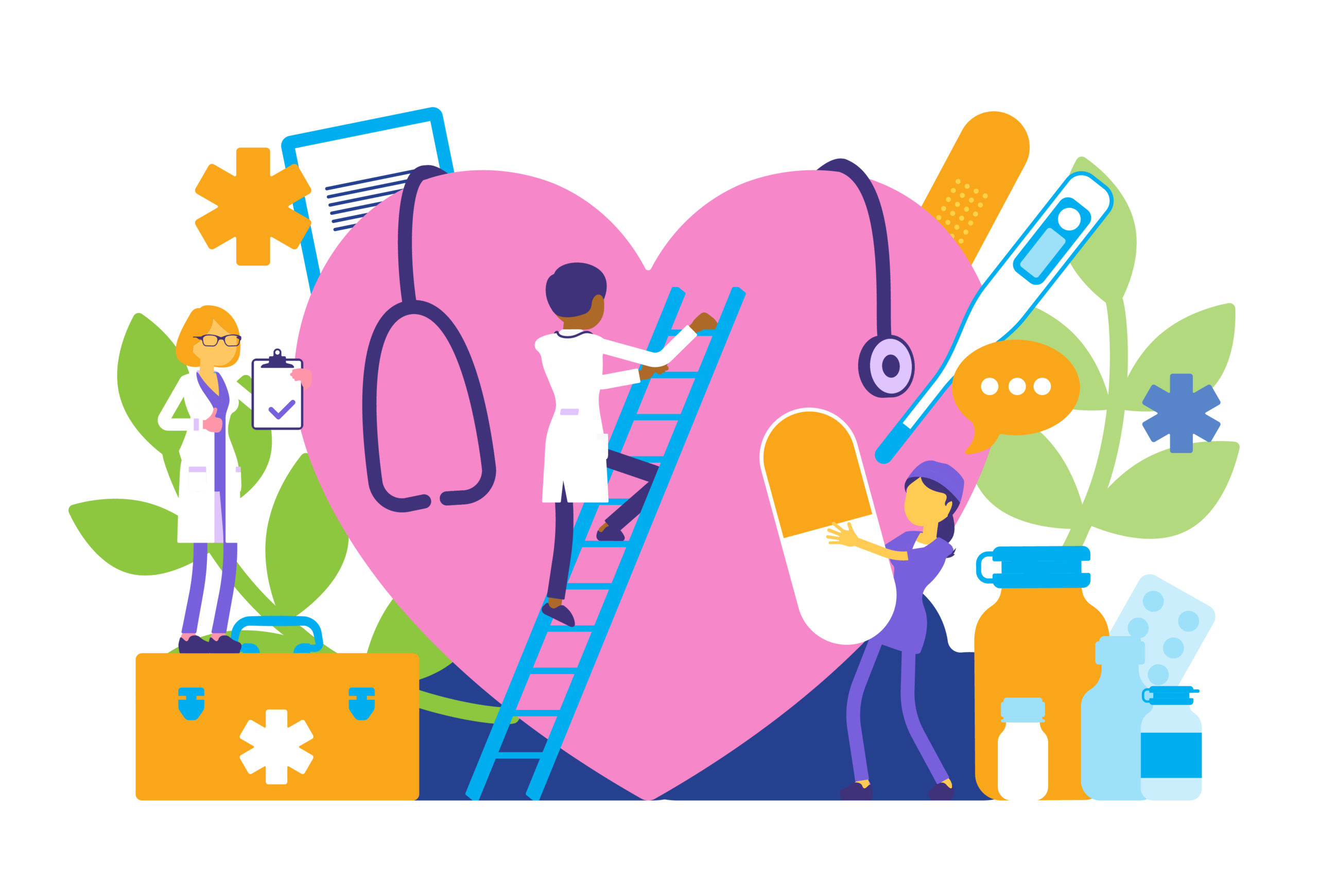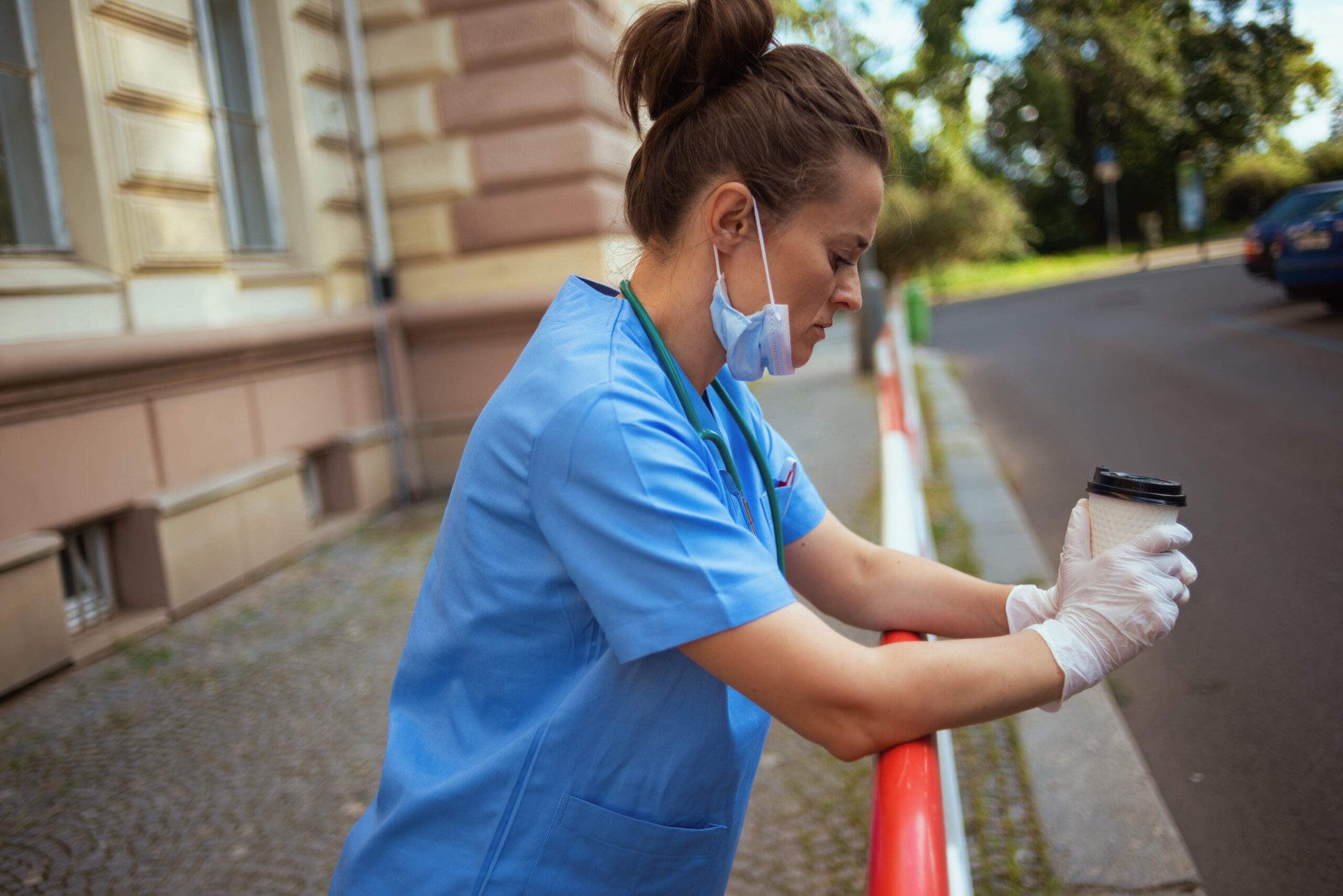While mindfulness is helpful in building resilience and improving nurses’ mental health, it doesn’t fix the larger issue: The healthcare system is crumbling, hospitals are understaffed, and nurses cannot provide safe patient care.
Mindfulness fostered conscious reflection, supported emotion regulation, and provided nurses with tools to work through challenging situations objectively
On his first day working in an acute care unit, Philip, a nursing student completing a placement in Toronto, Canada, watched as his preceptor (a registered nurse acting as a mentor for new nurses) walked off the job. “She was so stressed she quit on the spot, leaving me without a preceptor. That showed me just how bad it was,” said Philip, who didn’t want his name or hospital noted.
The “it” that Philip is referencing is burnout. Specifically, the burnout that is rampant among nursing staff and is forcing hospitals to close emergency rooms, cancel surgeries, and scramble to hire replacements.
Nurses Are Burnt Out
It should come as no surprise that North American healthcare workers have faced extremely stressful working conditions due to high volumes of infected patients throughout the pandemic, and that these workers continue to struggle. Amidst changing attitudes toward COVID precautions, hospitalizations in North America continue to rise, with recent surges in July and August 2022, according to the Centers for Disease Control and Prevention.
The pandemic has magnified problems in healthcare systems that have been ignored for decades. It has put extraordinary demands on nurses and other healthcare workers, all while forcing them to navigate high patient volumes, changing protocols, and unfamiliar working conditions. According to a survey conducted in 2022 by the Canadian Federation of Nurses Unions, over 94% of Canadian nurses feel burnt out. In the United States, 75% of nurses reported burnout according to the 2022 Frontline Nurses Mental Health and Well-Being Survey. Another survey found that almost seven in 10 Canadian and US nurses plan on leaving the profession altogether—an exodus our overcrowded hospitals cannot afford. With the North American healthcare system already struggling with limited staff, it is crucial we protect and preserve our nurses’ well-being. Now, research tells us one important way that we can do that.
Are Mindfulness-Based Interventions the Answer?
In the interest of reversing this healthcare crisis, a group of researchers and nurses reviewed fourteen studies that used mindfulness-based interventions (MBI) with registered nurses who were experiencing distress and burnout. Mindfulness-based training is a strategy that uses mindfulness—the basic human ability to be fully present, aware of where we are and what we’re doing, and not overly reactive or overwhelmed by what’s going on around us—to promote better regulation of negative emotions and behavior. By practicing mindfulness every day, we can gradually improve how we respond to stressors.
We know from previous research that this type of intervention has been successful in reducing burnout, stress, anxiety, and depression, but only a few studies have tested this with nurses. To bridge the gap in what we know about nursing burnout, PhD Candidate Hadassah Joann Ramachandran and a research team at the National University of Singapore published the “Effectiveness of mindfulness-based interventions on psychological well-being, burnout, and post-traumatic stress among nurses: A systematic review and meta-analysis” in the journal Applied Nursing Research. Across these studies, over 1,000 nurses participated in some sort of MBI for up to eight weeks, and their self-reported well-being, degree of burnout, and symptoms of post-traumatic stress were measured to see if there was any improvement. Then, the research team compared these results to groups who were taught other coping skills, like managing stress in leadership roles, and to groups who received no intervention.
Mindfulness Can Help—But the System Needs to Change
Nurses’ well-being improved after just two weeks of using MBI, with many reporting remarkably lower psychological distress, work-related stress, and depressive symptoms. Post-traumatic stress symptoms also lessened and some reported feeling less helpless in their jobs. Nurses who used other coping skills—or none at all—didn’t see the same progress.
Not surprisingly, even after MBIs, nurses reported that they didn’t feel any less burnt out. It’s clear that, while mindfulness is helpful in building resilience and improving nurses’ mental health, it doesn’t fix the larger issue: The healthcare system is crumbling, hospitals are understaffed, and nurses cannot provide safe patient care. Occupational burnout will not improve until these issues are handled. Philip echoes this sentiment. “You’re coping on an individual level but you’re responding to a systemic problem. From what I’ve seen, the gaps in mental health support, the burnout, the stress—that’s all due to structural issues.”
Nonetheless, it’s valuable to understand the ways that nurses and other healthcare professionals can improve their personal resilience. And the results are promising: Overall well-being improved, as well as symptoms of depression and work-related stress. Mindfulness fostered conscious reflection, supported emotion regulation, and provided nurses with tools to work through challenging situations objectively.
Nurses also said they gained a sense of personal accomplishment and job satisfaction, something that many feel is lacking in their professional lives due to workloads making it nearly impossible to provide good quality of care. Altogether, nurses’ psychological distress plummeted after learning a form of MBI, which may improve both personal and professional aspects of nurses’ lives. Mindfulness could be the remedy that our nurses—and in turn, our healthcare systems—desperately need.
read more
Mindfulness for Healthcare Professionals
Accessible mindfulness and mindful healthcare practices, meditations, and resources for healthcare workers.
Read More
Three Signs of Burnout in Healthcare—and the Role of Mindfulness in Healing the System
Cardiologist Jonathan Fisher unpacks the need to be aware of what the epidemic of burnout looks like, and how mindfulness can serve healthcare providers.
Read More
This Kind of Movement Can Be the Key to Healing Burnout
Coping with any degree of burnout can leave us feeling stuck. Sometimes, what we need to begin healing and to rediscover joy is to (literally) move our way through it.
Read More










